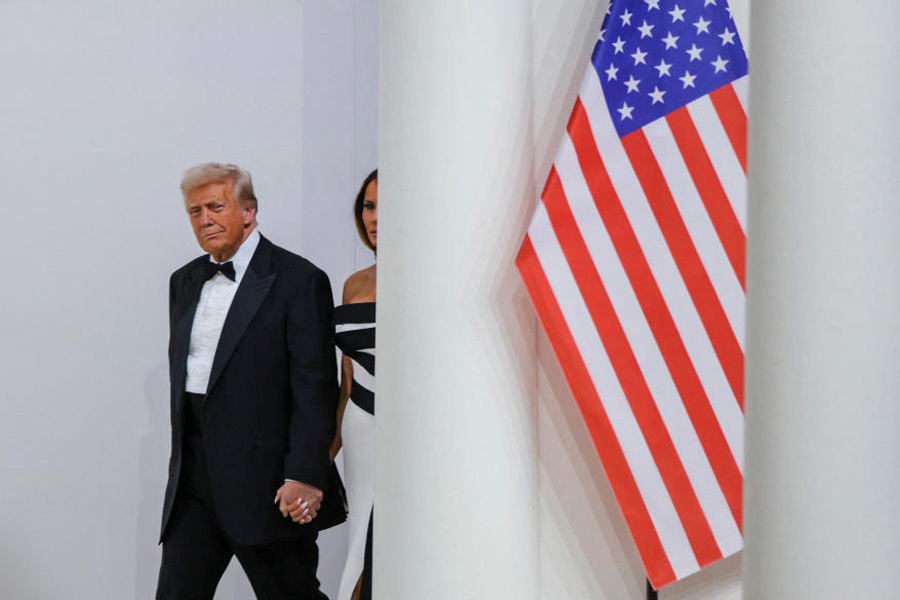A petition was filed in the Supreme Court on Tuesday against the Assam government’s decision to convert state-funded madrasas into general educational institutions, alleging that it was an “arbitrary exercise of legislative and executive powers” to deny Muslims the right to follow their religion and culture.
The special leave petition, filed by Md. Imad Uddin Barbhuiya and some other individuals, who owned land and buildings belonging to madrasas, said: “The respondents (Assam government) by way of the Notification in question dated 12.02.2021 have abrogated the right of the petitioner madrasas under Article 30(1) to ‘establish’ and ‘administer’ educational institutions of their choice inclusive of the right to decide their own curriculum which may also be based on their perception of ways to preserve their religion or culture.
“The government instructions issued by the respondents amount to a virtual takeover of the petitioner madrasa properties in the sense that proprietary rights which are exercisable by a person owning land, which include deciding what to build and how to use it, is now being made subject to the government’s choice.”
The petitioners have assailed Gauhati High Court’s judgment on February 4, 2022, upholding the validity of the state government’s decision to repeal the Assam Madrasa Education (Provincialisation) Act, 1995, and subsequent executive orders clearing the conversion of state-run madrasas into high schools. Through the Assam Repealing Act, the state’s BJP government aims to end religious teaching and instructions at these institutions, stops fresh admissions under the old course from April 1, 2021, and train the theology faculty members to teach general subjects.
The State Madrasa Education Board was dissolved and all records and functions transferred to the Board of Secondary Education, Assam. Subsequent orders removed courses relating to religious instructions from various grades of madrasas. The repealing Act and the consequent orders affected 401 madrasas.
According to the petitioners, the high court has erroneously observed that these madrasas being government schools, and wholly maintained by the state under Article 28(1) of the Constitution, cannot be permitted to impart religious instruction. Article 28(1) prohibits imparting of religious education in institutions wholly maintained with government funds.
The petitioners submitted that the scope of the Assam Madrasa Education (Provincialisation) Act, 1995, was limited to the state undertaking to pay salaries and provide consequential benefits to the teaching and non-teaching staff, and to administer and manage the madrasas.
The petitioners pointed out that the land and buildings belong to the madrasas and the expenses on electricity and furniture are borne by them.
“The repealing Act of 2020 takes away property coupled with statutory recognition of madrasa education and the impugned order dated 12.02.2021 issued by the governor disbands the ‘Assam State Madrasa Board’ created in 1954. It amounts to an arbitrary exercise of both legislative and executive powers and amounts to a denial of the petitioner madrasas’ ability to continue as madrasas providing religious instruction coupled with religious education,” the petition said.
“It is submitted that such an encroachment into the proprietary rights of the petitioner madrasas without payment of adequate compensation is a direct infraction of Article 30(1A) of the Constitution of India,” it added.
Article 30(1A) says: “In making any law providing for the compulsory acquisition of any property of an educational institution established and administered by a minority… the State shall ensure that the amount fixed by or determined under such law for the acquisition of such property is such as would not restrict or abrogate the right guaranteed under that clause.”
The petitioners said the high court judgment would result in the discontinuation of the madrasas.
“The respondents in the garb of improving standards of education in madrasas have taken away all proprietary rights of the petitioners, converting the names of the madrasas into high schools and changing the curriculum to be followed in them,” the appeal complained.
The petitioners contended that madrasa education had been considered valid in the state since 1954 and their students have got admission in government schools and universities and excelled professionally.











